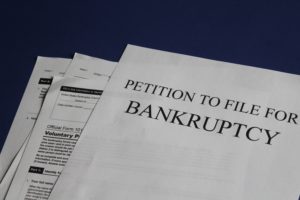 From the standpoint of mental health, this pandemic is a recipe for disaster. Not only are folks grappling with unemployment, financial stress, and grief, they’re doing so in a period of isolation, with limited access to the support systems that ordinarily get us through tough times.
From the standpoint of mental health, this pandemic is a recipe for disaster. Not only are folks grappling with unemployment, financial stress, and grief, they’re doing so in a period of isolation, with limited access to the support systems that ordinarily get us through tough times.
“Millions of Americans have lost their jobs,” Jack Kelly writes for Forbes. “They’ve watched helplessly as their meager savings dwindled away, as they were confined to their homes—prohibited from interacting with friends, attending church, temple or music and sporting events due to restrictions enacted in response to the Covid-19 pandemic. This resulted in a profound impact on the mental health and emotional well-being of people.”
Numerous respected public health institutions, including the Centers for Disease Control and Prevention and the World Health Organization, have warned the public of the potential risk for a mental health crisis as the spread of COVID continues unabated. In a major research study from the United Nations and WHO, the organizations conclude, “Mental health consequences are likely to be present for longer and peak later than the actual pandemic.”
This is an unimaginably challenging time, with economic stress, social isolation, and limited access to religious services. So much lies beyond our control; we obviously can’t wave a magic wand and make COVID go away. But we can do something about the economic stress—part of it, at least. In a time of so much uncertainty, bankruptcy gives you control over your finances.
Debt worsens stress and lowers self-esteem.
Many of us have struggled with more severe anxiety in recent months. Financial challenges and unemployment only intensify it.
Stress is one of the main emotions linked to debt. When there’s a pile of unpaid bills on your desk, or when you’re afraid to check the mail, it’s nearly impossible to fall asleep at night.
Our finances also shape how we see ourselves. It’s difficult to believe in your own worth when you’re deep in debt, but it’s important to remember that you’re not alone.
All of it—the stress and the low self-esteem—can hurt your ability to concentrate and focus. It’s impossible to be completely “on” when you’re panicking about paying the next month’s rent.
Give yourself some peace of mind.
No one needs any more stress during this difficult time. If the mental health fallout from COVID does outlast the virus itself, as experts predict, you’ll want to be prepared. It is easier to focus on our healing—as individuals, families, and communities—when you aren’t worried about daily survival.
There are different types of bankruptcies for different situations. An experienced Memphis bankruptcy lawyer can walk you through your best options based on your own circumstances and needs.
Right now, it may feel like time has stopped. But it is always possible to move forward, and bankruptcy can help you get there.
Call (901) 327-2100 or contact us here to schedule your free consultation.
